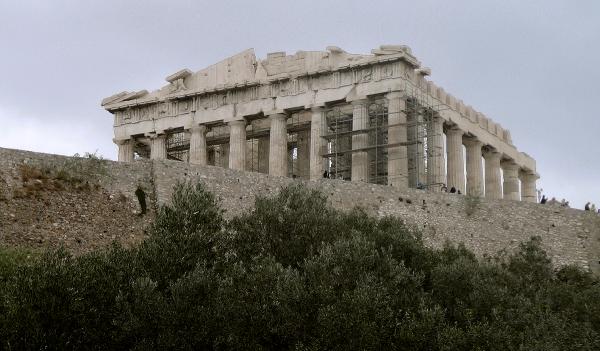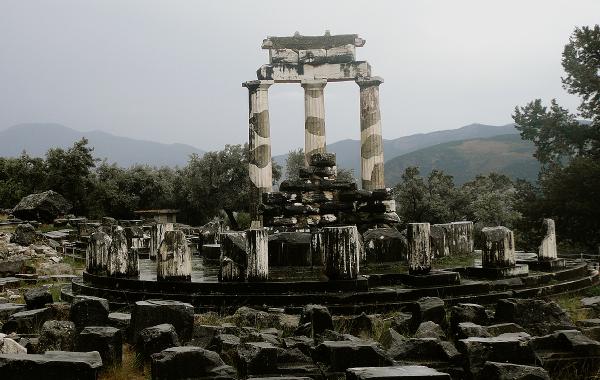Wie brutal etwa die Polizei in Spanien und Portugal gegen Demonstranten vorgeht, oder welche Bevölkerungs- und Berufsgruppen sich inzwischen den Protesten anschließen, solche Informationen muß man sich aus ziemlich verstreuten Quellen zusammensuchen. Eine, die sehr viele Berichte zu diesem Themenkreis ins Netz stellt, ist z.B. das Blog uhupardo. Aus solchen Quellen erfährt man u.a., daß Mitte des Monats in Portugal bis zu 10.000 aktive Soldaten und Reservisten gegen ihre Regierung auf die Straße gingen (darüber berichtete auch der Weltspiegel der ARD, am 11.11.12) oder daß sich in Spanien am Wochenende nach ihren Knüppeleinsätzen gegen Streikende geschätzte 5.000 Polizisten nachträglich mit den Demonstranten solidarisierten und selbst einen Protestzug gegen die Beschlüsse ihrer Regierung veranstalteten. Ein Spruchband lautete: “Vergebt uns, daß wir die Banker und Politiker nicht verhaftet haben".
Doch es ist wie so oft: je mehr man sich zu informieren versucht, desto mehr widersprechen sich Meldungen und Berichte.

Am längsten währt die akute Krise schon in Griechenland. Was aber ist da los, fragt man sich als interessierter Mitteleuropäer, der am Ende wie alle gefoppten Normalbürger mit seinen paar Kröten für die Schulden der Griechen (und der Italiener, Spanier, Portugiesen und Franzosen) haften wird. Wer hat die Krise dort nun wirklich zu verantworten?
Der Tenor der Einschätzungen erinnert an das altbekannte Paradoxon des Kreters Epimenides: “Alle Kreter sind Lügner”, leicht ausgeweitet zu “alle Griechen sind Gauner”.
Aber so einfach ist es natürlich nicht; die Scheidelinie zwischen Verursachern und Betroffenen verläuft nicht entlang nationaler Grenzen, sondern entlang sozialer. Wenn man liest, daß inzwischen mehr als zwei Millionen Griechen unterhalb der Armutsgrenze leben (die in Griechenland beträchtlich unter der unsrigen liegt) und sich immer mehr von ihnen aus Verzweiflung sogar das Leben nehmen, weil ihnen die brutal harte Troika aus IWF, EU-Kommission und EZB oder die eiserne Sparkanzlerin Merkel das letzte Geld zur Schuldentilgung abpressen wollen, möchte man spontan mit ihnen gegen die Spardiktate aus Brüssel protestieren.
Andererseits tauchen immer wieder Meldungen auf, denen zufolge in Griechenland die meisten Reichen kaum Steuern zahlen und gerade auch Geistliche der orthodoxen Kirche dort die Steuern hinterziehen und Privatvermögen in Höhe von mehreren Millionen Euro gehortet haben.
Der Weltspiegel berichtete am 26. August d.J. von den krisenungerührten Strandpartys der reichen Griechen, die seit 2009 an die 80 Milliarden Euro außer Landes und auf ihren ausländischen Konten ins Trockene gebracht haben sollen. –
Moment mal, weil der griechische Staat nicht in der Lage oder auch einfach nicht willens ist, seine Millionäre zu zwingen, mindestens ihre Steuerschuld zu begleichen und zur Sanierung ihres eigenen Landes beizutragen, schieben wir diesem Staat Milliarden über Milliarden rüber? Ich glaub’, ich steh’ im Wald!
So aber sieht’s anscheinend aus, und möglicherweise sogar noch schlimmer.
Korruption ist ja auch in Deutschland keineswegs ein unbekanntes Phänomen. Laut Transparency International belegt Deutschland im weltweiten Korruptionsindex Platz 14, und 70% aller befragten Deutschen finden, daß Korruption in Deutschland in den letzten drei Jahren zugenommen hat, Griechenland aber landet im Korruptionsindex auf Platz 80, und Bestechung scheint dort genauso wie Steuerhinterziehung noch nicht einmal ein “Kavaliersdelikt” zu sein.
“It’s simply assumed, for instance, that anyone who is working for the government is meant to be bribed... Government ministers who have spent their lives in public service emerge from office able to afford multi-million-dollar mansions and two or three country homes”, schrieb der amerikanische Journalist Michael Lewis in einer sehr, sehr langen und gründlichen Griechenland-Reportage schon im Oktoberheft des Jahres 2010 von Vanity Fair. Ich erlaube mir, sie wegen dieser Gründlichkeit, mit der sie recherchiert zu sein scheint, in Auszügen noch einmal wiederzugeben.

Der, um nur das mildeste Wort dafür zu gebrauchen, Schlendrian herrscht Lewis’ Recherche zufolge in Griechenland in allen Sektoren und auf allen Ebenen. Er interviewte dazu den griechischen Finanzminister.
“When Papaconstantinou arrived here, last October, the Greek government had estimated its 2009 budget deficit at 3.7 percent. Two weeks later that number was revised upward to 12.5 percent and actually turned out to be nearly 14 percent. –
“The second day on the job I had to call a meeting to look at the budget,” he says. “I gathered everyone from the general accounting office, and we started this, like, discovery process.” Each day they discovered some incredible omission. A pension debt of a billion dollars every year somehow remained off the government’s books, where everyone pretended it did not exist, even though the government paid it; the hole in the pension plan for the self-employed was not the 300 million they had assumed but 1.1 billion euros; and so on... By the final day of discovery, after the last little hand had gone up in the back of the room, a projected deficit of roughly 7 billion euros was actually more than 30 billion. The natural question – How is this possible? – is easily answered: until that moment, no one had bothered to count it all up [...]
As he finishes his story the finance minister stresses that this isn’t a simple matter of the government lying about its expenditures. “This wasn’t all due to misreporting,” he says. “In 2009, tax collection disintegrated, because it was an election year.”
“What?”
He smiles.
“The first thing a government does in an election year is to pull the tax collectors off the streets.”
Diese unglaubliche Aussage überprüfte Lewis (welchem Offiziellen in Griechenland kann man schon glauben?), indem er zwei (inzwischen kaltgestellte) Steuerprüfer befragte.
“Tax Collector No. 1... took it for granted that I knew that the only Greeks who paid their taxes were the ones who could not avoid doing so – the salaried employees of corporations, who had their taxes withheld from their paychecks. The vast economy of self-employed workers – everyone from doctors to the guys who ran the kiosks that sold the International Herald Tribune – cheated (one big reason why Greece has the highest percentage of self-employed workers of any European country). “It’s become a cultural trait,” he said. “The Greek people never learned to pay their taxes. And they never did because no one is punished. No one has ever been punished.
The scale of Greek tax cheating was at least as incredible as its scope: an estimated two-thirds of Greek doctors reported incomes under 12,000 euros a year—which meant, because incomes below that amount weren’t taxable, that even plastic surgeons making millions a year paid no tax at all.”
“Tax Collector No. 2... also arrived with a binder full of papers, stuffed with real-world examples of Greek companies that had cheated on their taxes...The first was an Athenian construction company that had built seven giant apartment buildings and sold off nearly 1,000 condominiums in the heart of the city. Its corporate tax bill honestly computed came to 15 million euros, but the company had paid nothing at all. Zero. To evade taxes it had done several things. First, it never declared itself a corporation; second, it employed one of the dozens of companies that do nothing but create fraudulent receipts for expenses never incurred and then, when the tax collector stumbled upon the situation, offered him a bribe. The tax collector blew the whistle and referred the case to his bosses – whereupon he found himself being tailed by a private investigator, and his phones tapped. In the end the case was resolved, with the construction company paying 2,000 euros. “After that I was taken off all tax investigations,” said the tax collector.
I stopped him. I realized that if I let him go on we’d be there all night. The extent of the cheating – the amount of energy that went into it – was breathtaking... Scandal after scandal poured forth. Twenty minutes into it I’d lose interest. There were simply too many: they could fill libraries.
The Greek state was not just corrupt but also corrupting. – The hardest thing to do in Greece is to get one Greek to compliment another behind his back. No success of any kind is regarded without suspicion. Everyone is pretty sure everyone is cheating on his taxes, or bribing politicians, or taking bribes, or lying about the value of his real estate. And this total absence of faith in one another is self-reinforcing. The epidemic of lying and cheating and stealing makes any sort of civic life impossible; the collapse of civic life only encourages more lying, cheating, and stealing.”

Doch als "Wiege der europäischen Kultur" gehörte Griechenland natürlich in die EU, ganz egal, wie es um seine Wirtschaft und Ethos und Moral seiner Bürger stand.
“For most of the 1980s and 1990s, Greek interest rates had run a full 10 percent higher than German ones, as Greeks were regarded as far less likely to repay a loan. – In the late 1990s they saw their chance: get rid of their own currency and adopt the euro. To do this they needed to meet certain national targets... To lower the budget deficit the Greek government moved all sorts of expenses (pensions, defense expenditures) off the books. To lower Greek inflation the government did things like freeze prices for electricity and water and other government-supplied goods, and cut taxes on gas, alcohol, and tobacco. Greek-government statisticians did things like remove (high-priced) tomatoes from the consumer price index on the day inflation was measured.
In 2001, Greece entered the European Monetary Union, swapped the drachma for the euro, and acquired for its debt an implicit European (read German) guarantee. Greeks could now borrow long-term funds at roughly the same rate as Germans – not 18 percent but 5 percent. To remain in the euro zone, they were meant, in theory, to maintain budget deficits below 3 percent of G.D.P.; in practice, all they had to do was cook the books to show that they were hitting the targets. Here, in 2001, entered Goldman Sachs, which engaged in a series of apparently legal but nonetheless repellent deals designed to hide the Greek government’s true level of indebtedness. For these trades Goldman Sachs – which, in effect, handed Greece a $1 billion loan – carved out a reported $300 million in fees.”
“After the new party (the supposedly socialist Pasok) replaced the old party (the supposedly conservative New Democracy), it found so much less money in the government’s coffers than it had expected that it decided there was no choice but to come clean. The prime minister announced that Greece’s budget deficits had been badly understated... Pension funds and global bond funds and other sorts who buy Greek bonds... panicked. The new, higher interest rates Greece was forced to pay left the country – which needed to borrow vast sums to fund its operations – more or less bankrupt. In came the I.M.F. to examine the Greek books more closely; out went whatever tiny shred of credibility the Greeks had left.”
“In addition to its roughly $400 billion (and growing) of outstanding government debt, the Greek number crunchers had just figured out that their government owed another $800 billion or more in pensions. Add it all up and you got about $1.2 trillion, or more than a quarter-million dollars for every working Greek... And those were just the official numbers; the truth is surely worse. “Our people went in and couldn’t believe what they found,” a senior I.M.F. official told me, not long after he’d returned from the I.M.F.’s first Greek mission.”

“As it turned out, what the Greeks wanted to do, once the lights went out and they were alone in the dark with a pile of borrowed money, was turn their government into a piñata stuffed with fantastic sums and give as many citizens as possible a whack at it. In just the past decade the wage bill of the Greek public sector has doubled, in real terms – and that number doesn’t take into account the bribes collected by public officials. The average government job pays almost three times the average private-sector job. The national railroad has annual revenues of 100 million euros against an annual wage bill of 400 million, plus 300 million euros in other expenses.”
“The retirement age for Greek jobs classified as “arduous” is as early as 55 for men and 50 for women. As this is also the moment when the state begins to shovel out generous pensions, more than 600 Greek professions somehow managed to get themselves classified as arduous: hairdressers, radio announcers, waiters, musicians, and on and on and on. The Greek public health-care system spends far more on supplies than the European average—and it is not uncommon, several Greeks tell me, to see nurses and doctors leaving the job with their arms filled with paper towels and diapers and whatever else they can plunder from the supply closets.”
So weit nur in Auszügen die Bestandsaufnahme, der Kassensturz, den Michael Lewis für Griechenland gemacht hat, und der unter dem Strich nicht nur einem finanziellen Bankrott gleichkommt, sondern vor allem auch einem moralischen:
“Even if it is technically possible for these people to repay their debts, live within their means, and return to good standing inside the European Union, do they have the inner resources to do it? Or have they so lost their ability to feel connected to anything outside their small worlds that they would rather just shed themselves of the obligations? – The place does not behave as a collective... It behaves as a collection of atomized particles, each of which has grown accustomed to pursuing its own interest at the expense of the common good.
This question of whether Greece will repay its debts is really a question of whether Greece will change its culture, and that will happen only if Greeks want to change. I am told 50 times if I am told once that what Greeks care about is “justice” and what really boils the Greek blood is the feeling of unfairness. Obviously this distinguishes them from no human being on the planet, and ignores what’s interesting: exactly what a Greek finds unfair. It’s clearly not the corruption of their political system. It’s not cheating on their taxes, or taking small bribes in their service to the state. No: what bothers them is when some outside party – someone clearly different from themselves, with motives apart from narrow and easily understood self-interest – comes in and exploits the corruption of their system.”
Enter the monks. Aber das ist eine andere Fortsetzung dieser nicht-endenden Geschichte.
Doch was folgt aus all den Befunden, wenn es sich nicht um Stimmungsmache handelte, sondern fundierte und zutreffende Berichterstattung wäre? Leider treffen Lewis’ Ausführungen im Kern genau mit dem überein, was mir ein Ladenbesitzer in Delphi schon vor zwei Jahren klipp und klar gesagt hat: “Ist etwa irgendjemand so blöd zu glauben, daß Griechenland diese ganzen Schulden je zurückzahlen wird?”

... link (0 Kommentare) ... comment



